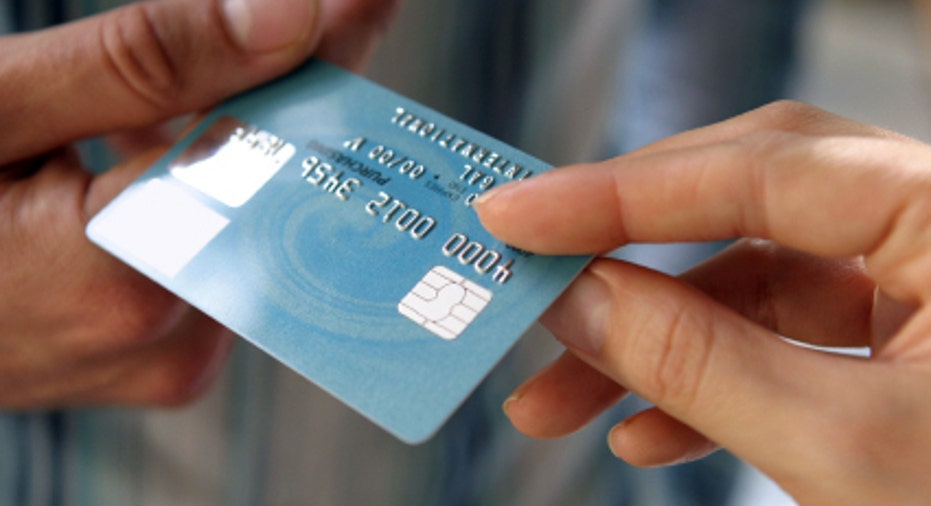Prepaid Card Use is Growing Rapidly. Is this a Good Thing?

Do you suffer from vertigo (or, more correctly, acrophobia: a fear of heights)? If so, you should probably avoid creating a mental picture of a graph derived from Mercator Advisory Group's projections for prepaid card usage in the U.S. There's a real danger you could get a dizzy spell, and bump your head on the x-axis. Mercator reckons that $28.6 billion was loaded onto prepaid cards in 2009. It expects that figure to top $201.9 billion next year.
Who uses prepaid plastic?
About 13 percent of U.S. households had a prepaid debit card last year, according to research published by Javelin Strategy & Research on April 11. So who lives in those households? Javelin says that this form of plastic is particularly popular among Generation Y and other youngsters, along with those who don't use traditional banking products (often because they don't have access to them). In a press release, Beth Robertson, the company's director of payments research, explained the appeal of prepaid debit cards:
Some prepaid cards aren't so great
On April 12, the day after Javelin issued its report, Consumer Action published its own. And this exposed that the story of prepaid cards isn't unrelentingly rosy. Like others before ("Senator proposes new rules for prepaid debit cards"), Consumer Action warned against the numerous "gotchas" that await the unwary. Four of these are:
- Sneaky fees. With some cards, you pay to call customer service, you pay inactivity fees if you don't use your card, you pay to load money, you pay to use ATMs, you pay if a transaction is declined…These and other charges can quickly add up.
- No FDIC insurance. If your deposited funds aren't held at an FDIC-insured institution, if your card issuer goes bust, you could lose your money.
- No regulation. If you and your card issuer fall out, there's no authority to go to bat for you. And, by the way, there's no legal obligation on issuers to disclose fees upfront.
- No statutory protections. Suppose you lose your card or it's stolen. Even if the issuer promises to help you out, such programs are often voluntary and could be difficult or impossible to enforce.
All of this sounds scary. However, there are some good prepaid debit cards out there. The golden rule, as with choosing traditional credit cards, is to carefully comparison-shop before you take on plastic.
Consumers speak up about prepaid cards
Yet that (comparison shopping) is precisely what consumers don't do, or very rarely, according to yet another April report on prepaids, this time from the Pew Health Group's Financial Security Portfolio. Pew's research was based on a series of focus groups comprising prepaid users, which were conducted last November in Houston and Chicago. It found: "Few participants comparison shop for a prepaid debit card. Most picked whichever one was convenient or recommended to them." That could be an expensive mistake.
Pew's focus groups provided some interesting insights into other consumer attitudes. Here are some quotes:
Credit cards vs. prepaid debit cards
That last quote seems especially revealing. If you're bad at managing your personal finances (and some of the most intelligent and successful people are), then a carefully chosen prepaid card could be ideal for you.
However, if you have the self-discipline to use a mainstream credit card responsibly, then there's no real advantage to opting for a prepaid debit card. Bear in mind that some prepaid debit cards are perfectly legitimate and fair, but in general credit cards have significant advantages over prepaid debit cards, including:
- Responsible credit card use, including on-time payments, establishes your credit history and improves your credit score. Debit cards don't report to credit reporting agencies.
- If you use them strategically, rewards credit cards can save you money by rebating part of your purchases.
- With credit cards, you get an interest-free loan from the transaction date until the next due date.
- If you need it, you can get long-term credit, though it's best to revolve balances only on low interest credit cards.
- Many credit cards provide extended warranties on goods you purchase on the card.
- Some credit card companies offer price protection: they refund the difference if you find exactly the same item you've recently bought being offered cheaper elsewhere.
- Some credit cards provide valuable perks such as roadside assistance, car rental loss/damage coverage, trip cancellation/interruption insurance, extended warranties, lost luggage coverage and so on.
By all means use a prepaid debit card if you aren't ready or can't qualify for a revolving credit card. A prepaid debit card can give you the convenience of paying with plastic while you get your financial footing.
The original article can be found at IndexCreditCards.com:Prepaid card use is growing rapidly. Is this a good thing?



















